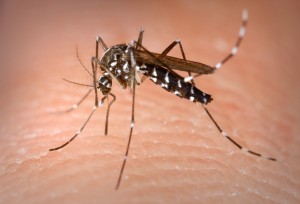The world has ambivalent feelings regarding the Zika virus. According to the World Health Organization (WHO), the Zika virus is “now spreading explosively.” With 31 isolated cases in the United States, the organization is estimating between 3 million to 4 million infections within one year in the country.
The Zika virus has been called to attention by doctors in Brazil noticing an increase case of microcephaly — babies born with heads and brains that are too small. While this symptom used to be very rare, about five to six cases per year, currently there are around 4180 cases reported all around the world.
Zika virus is a mosquito-borne virus that was first introduced in 1947 in a group of rhesus monkeys of Uganda. This virus is not unheard of in that it is the same family as the Yellow Fever, West Nile Virus, Chikingunya, and Dengue Fever.
 Although there is no vaccine or treatment for the Zika virus, it usually has mild symptoms such as fever, rash, headaches, and red eyes; thus, about 80% will not recognize that they are infected. Because most of the patients will have no symptoms or very few symptoms, it is not a threat to the majority of the population. However, what makes this virus lethal is that people are drawing a correlation between the virus and microcephaly. When babies are born this way, it leads to delayed development as well as incomplete brain development. Moreover, health officials are associating the Guillain-Barre syndrome which can cause temporary paralysis.
Although there is no vaccine or treatment for the Zika virus, it usually has mild symptoms such as fever, rash, headaches, and red eyes; thus, about 80% will not recognize that they are infected. Because most of the patients will have no symptoms or very few symptoms, it is not a threat to the majority of the population. However, what makes this virus lethal is that people are drawing a correlation between the virus and microcephaly. When babies are born this way, it leads to delayed development as well as incomplete brain development. Moreover, health officials are associating the Guillain-Barre syndrome which can cause temporary paralysis.
Following any other threatening pandemics, there have been sayings that the virus is transmittable through sexual intercourse. However, according to WHO, the Zica virus can intermittently be transmitted through blood, but the spread through intercourse is not yet verified. The only proven way of getting the virus is through mosquitoes — female Aedes Aegypti mosquitoes that feeds mostly during the day.
The health officials in El Salvador are advising women to not get pregnant, and the ones in Brazil are recommending to delay pregnancy if possible. Dr. Anne Schuchat, the Principal Deputy Director at CDC is not advising women to avoid pregnancy in the United States. However, all women in their early pregnancy stages should avoid traveling to areas where the Zika virus is in place. Since there are no treatments currently available, using insect repellent, wearing thick clothing and staying inside will at least decrease the risk.
By Sooahn Ko



